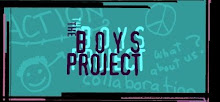
Great line from a fantastic piece: "Coming Out In Middle School,"by Benoit Denizet-Lewis. The article chronicles stories of middle schoolers from Oklahoma to California who identify as gay or bisexual. Some are out to their families, peers, and schools, some aren't. And, although each kid's story is unique, there is one thought that consistently makes an appearance:
"You're so young, how could you possibly know already?"
Many acknowledge in the article how flawed this argument really is. How many would question it if your 12 year-old son or nephew said he had a crush on a girl? Would he be too young to know? The mother of 12 year-old Kera put it best: "I knew I was interested in boys when I was her age, so it didn’t strike me as unusual that Kera might know she’s interested in boys and girls, put two and two together and call herself bisexual. Kids just know what those words mean a lot earlier than when I was growing up.”
Obviously, not everyone is able to see the logic in that sentiment. From being ostracized by friends and family to actually being assaulted (with a bible?!), these teens and pre-teens are faced with a difficult choice of whether to come out or not; something generations before them faced, but without the presence of school organizations (like GSAs - Gay, Straight, Alliances), and probably with less open-minded adults around them.

What stands out in all of their stories is the role school plays in their lives. A comedian once said something like, "I don't know why parents beat their kids... when damaging them psychologically is so much more permanent." Parents play a huge role in our lives, but acceptance by the peer group at this age? Hard to say whether it's more important, but it's certainly up there. Some schools seem to get this concept completely. But, addressing issues of sexuality is still not easy for every teacher to do. Comments from teachers range from avoidance to discomfort:
"If I have to stop what I’m doing every time a student says ['You're gay!'], I won’t have any time to teach!"
Jennifer Mathieu Blessington of Johnston Middle School in Houston has adopted a simple policy that more teachers should try to impart on their students: "We don’t use the word 'gay' in a negative way in this classroom. Gay people are human beings, and that’s the way we talk about them in here. Is that understood?"
And, the discomfort:
"... Others are afraid to address the language because they feel like it would mean talking about sexuality, which they aren’t comfortable doing in a middle school setting."
The Girl Talk and Boy Talk Blogs are not intended to be plugs for our program. Through our blogs, we hope to facilitate discussions and stimulate some thought - and, occasionally offer a fun read. But, it's so hard to see a sentiment like this without thinking about The Girls & Boys Projects. In addition to trying to empower students to find their own voices, we also hope teachers will obtain new language and comfortability in dealing with these social issues.
As is clearly evident from the article, changing the culture of a school - of a society - is a collaborative effort. And, we're glad to be doing our part.











